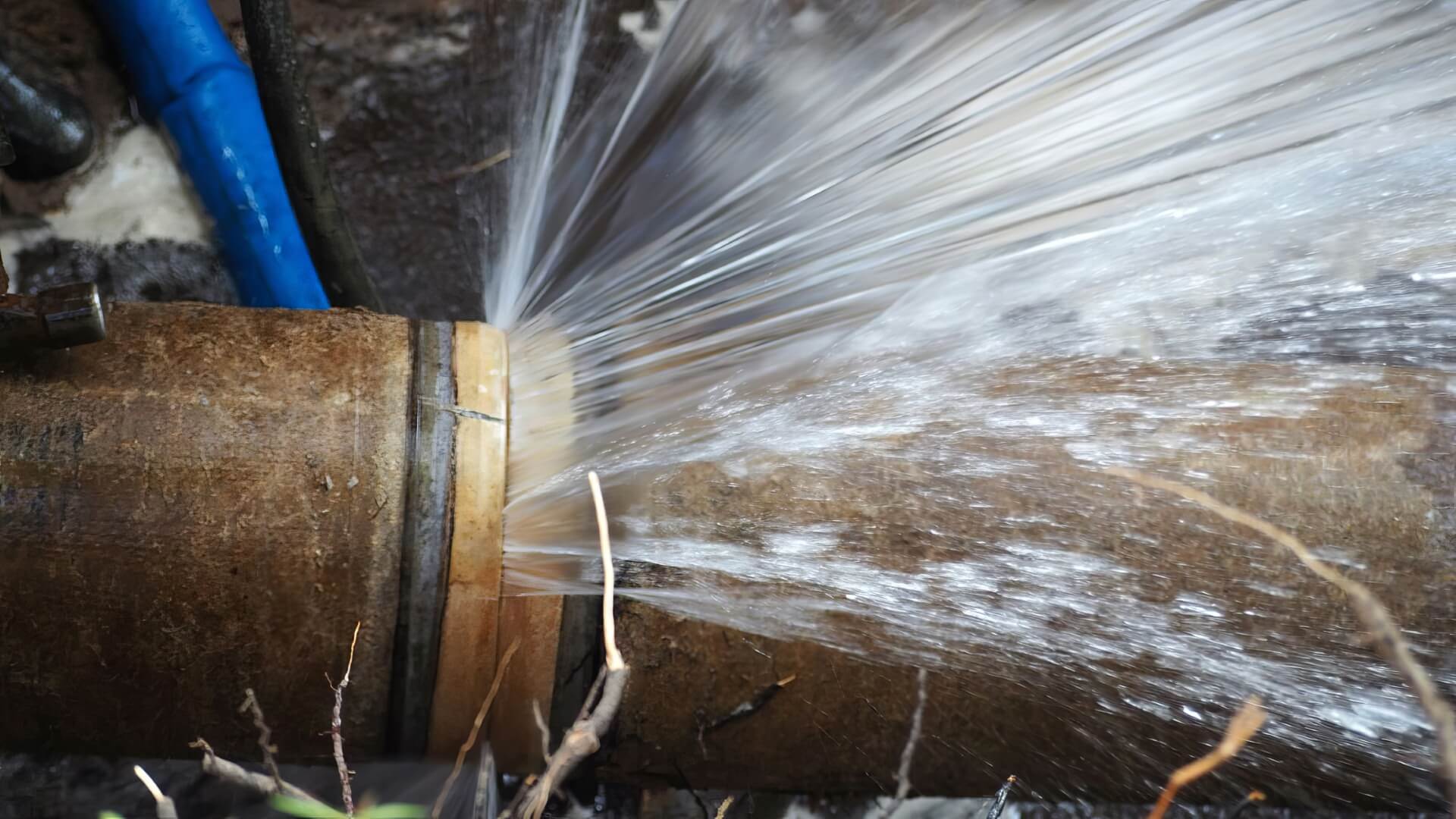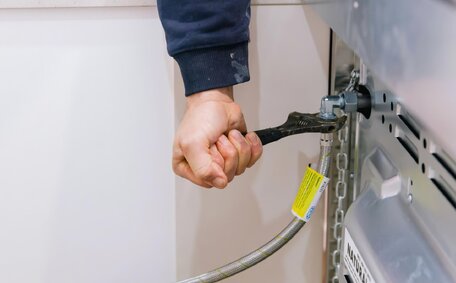Welcome!
Upgrading an ageing hot water system can lead to substantial benefits, including reduced energy bills and lower greenhouse gas emissions. By switching to a new model such as a heat pump or solar hot water system, homeowners can enjoy cost savings and a reduced environmental footprint.
This guide will extensively cover the benefits and drawbacks of retrofitting your hot water system versus opting for complete replacement.
We will examine the costs, potential energy savings, available rebates, and the lifespan of pump water heaters relative to your existing unit.
Our goal is to provide detailed insights on the feasibility and benefits of upgrading to a solar heat pump system. You’ll find practical advice, key considerations, and steps necessary to retrofit your hot water system for enhanced performance.
We’re dedicated to empowering you to make the most informed decision for your home and circumstances.
Is It Time to Upgrade My Old Hot Water System?
If your heat pump hot water heater is more than 10 years old, efficiency losses are common. Indicators that your system may need upgrading are:
- Frequent breakdowns and repairs
- Long wait times for the water to reach the desired temperature
- Noisy operation or rumbling sounds
- Rust around fittings and pipes
- Elevated energy bills due to the inefficient heating of water
New hot water heat pumps can achieve more than three-fold energy efficiency compared to outdated electric systems with resistive elements over ten years old. Retrofitting with a system where the heat pump can manage energy use lets you cut down on consumption and save on running costs.
Think about upgrading if your current system is unreliable or costly, and don’t forget to investigate rebate options. Newer models with innovative technology often come with extensive warranties and may qualify for rebates, aiding in offsetting installation costs. Early upgrades promise enduring savings and a smaller environmental impact.
Balance the current age and performance of your unit against the gains from new pump hot water systems. Consider an upgrade if you face steep energy costs or frequent system malfunctions. Proactive replacement helps prevent the inconvenience of emergency system failures.
Choosing Between Heat Pumps, Solar, and Gas Hot Water Systems
When upgrading your hot water system, there are three main energy efficient options to consider - heat pump water heaters, solar hot water systems, and modern gas systems.
Hot water heat pumps exhibit remarkable energy efficiency by using electricity to pull heat from the air and transfer it to water. They can deliver heated water with over 300% enhanced efficiency compared with older electric models featuring conventional resistive elements, and they qualify for hot water rebates up to $1000 across various regions. Heat pumps have low operating costs but do require electricity to run.
- Heat Pumps: Extremely energy efficient. Lower greenhouse emissions than gas. Can still heat efficiently in cloudy weather. Require electricity. Rebate eligibility.
Solar water heaters employ a pv system to pre-heat your hot water supply, curtailing dependence on your conventional system. Proper installations with evacuated tube technology can reach impressive energy-saving milestones, supplying over 70% of the water your household utilises for warmth. Solar heat technologies including solar pv systems are exceptionally eco-friendly yet necessitate solar panels on your roof.
- Solar Hot Water: Uses renewable solar energy. Very low running costs. Reduces carbon footprint. Needs roof panels. Upfront install cost.
Contemporary gas water heaters efficiently heat water using natural gas and may be a practical choice for upgrading your system. Condensing units can achieve a 4-star efficiency rating. However, gas water systems lack renewable energy perks but don’t depend on electricity to function.
- Gas: Good energy rating potential. No external panels required. Less eco-friendly than electric/solar. Ongoing gas costs.
Take into account your family’s water usage, financial plan, roof area for installations, and environmental aspirations when evaluating these upgrade options, factoring in the savings from incentives such as Small-scale Technology Certificates (STCs).
Comparing Installation Costs
When budgeting for a solar ready hot water system upgrade, the installation and purchase costs are key considerations. While prices vary, below are the typical initial cost ranges for different system retrofits, with potential rebates up to 1000 dollars:
| System Type | Typical Cost Range |
| Heat Pump | $3,000 - $5,500 |
| Gas | $2,000 - $4,000 |
| Solar | $5,000 - $8,000 |
Initial investments for heat pumps and gas systems are often less than for solar options, and government rebates may reduce heat pump costs by up to $1,000. Solar setups come with added costs for roof panels and related installation gear.
While more expensive initially, upgrading to more energy-efficient storage systems lowers your energy bills in the long run. Your old hot water system may only have 5 years left, so investing in A new system designed for storage hot water with over 15 years of lifespan can yield savings for many years ahead.
Discuss upgrade costs in a consultation to find the most cost-effective and efficient system for your home, including possibilities of water rebate up opportunities. With significant operating savings, which potentially include rebate up, an effective upgrade delivers an excellent return on your investment over time.
Benefits of Energy Efficient Systems
Switching to a more energy-efficient hot water system brings numerous long-lasting advantages to your household.
A key advantage is the substantial decrease in energy expenses. Both heat pumps and solar systems may achieve efficiency triples that of traditional electric storage water heaters over ten years old. This can lead to notable savings on your annual running costs.
Additionally, eco-friendly systems substantially reduce your carbon footprint. Replacing an old electric model with a modern heat pump electric system could cut greenhouse gas emissions by around 60%, while opting for solar might reduce them by as much as 80%.
Moreover, an updated system ensures continuous flow, instant hot water on demand, precise temperature control, and reliable operation, eliminating the worry of sudden cold showers or frequent repairs.
Increasing property value with an upgraded electric hot water system is an added bonus. With energy costs rising, buying a home with an efficient hot water system is appealing to potential buyers. Upgrade now and your investment will pay dividends later.
Considering purchase and installation costs are mostly reclaimed long-term from lower energy bills, upgrading your pump hot water system is a smart investment. Upgrade your system if it’s over a decade old to take advantage of cost savings, enhanced performance, and environmental benefits.
Government Rebates and Incentives
Under the STC program, you could be eligible for a rebate of up to $1,000 when you upgrade to an energy-efficient model.
Victorian residents can also apply for the Victorian Energy Upgrades programme. This provides discounts when upgrading to a 6 star or higher gas, electric or solar hot water system. Discounts of up to $1,000 are available for eligible heat pump systems.
Check if you qualify for these rebates when requesting quotes. The STC and Victorian water rebate programs lower the upfront costs of installing a more energy efficient hot water system. This helps offset the higher price of heat pumps and solar models compared to some gas systems.
Savings on the initial installation enhance the feasibility of your upgrade. Get in touch with our experts or check government websites for detailed rebate information and eligibility criteria specific to your location and hot water requirements.
Maintenance Tips for Extending System Lifespan
Proper maintenance is crucial for ensuring your retrofitted hot water system continues performing efficiently for years to come.
The following maintenance practices can significantly prolong the life of your system:
- Flush your hot water tank annually to prevent sediment buildup. Turn off power, close valves, open the drain cock and allow water to flow out for 5 minutes.
- Regularly inspect and replace the anode rod every three to five years to guard against corrosion. Your plumber can assess and replace the rod if severely corroded.
- Insulate hot water pipes to curtail heat loss substantially. Use good quality foam lagging to wrap exposed pipes.
- Keep the area around your pump water heater clear to ensure maximum airflow for optimal efficiency.
- Schedule an annual service with a licenced plumber to check your systems efficiency and condition.
Schedule a hot water system maintenance check with Beecroft Plumbing Pty Ltd for professional servicing. Our qualified technicians can perform draining, anode rod inspection, pressure relief valve testing, and insulation checks to ensure your system functions at its best.
Consistent and thorough maintenance can extend the service life of your upgraded water system beyond 15 years. Proper care boosts efficiency, minimises energy wastage, and preemptively addresses issues ensuring peak operation and a longer lifespan.
Proper maintenance is crucial for ensuring your retrofitted hot water system continues performing efficiently for years r tank annually to prevent sediment buildup. Turn off power, close valves, open the drain cock and allow water to flow out for 5 minute about retrofitting older hot water systems:
How much does it cost to upgrade to a more energy efficient hot water system?
Costs vary depending on the type of system. As a guide, upgrading to a system heat pump typically ranges from $3000 - $5500, gas from $2000 - $4000, and solar $5000 - $8000. Rebates up to $1000 are available to help lower installation costs.
Should I repair or replace my older hot water system?
If your system is over 10 years old and experiencing frequent breakdowns, replacement is usually better than persisting with repairs. The costs of multiple repairs often outweigh replacement with a new energy efficient system offering 15+ years reliability.
How do I select the best hot water system for my home?
Evaluate your home’s hot water requirements, available space for solar panels, initial expenses, rebate opportunities, and sustainability objectives. Our plumbing experts can appraise your situation and recommend the most suitable system for your needs.
How can I reduce my energy bills?
Upgrading to an energy efficient hot water system like a heat pump or solar can save hundreds per year on bills. Better insulation, shorter showers, and timer controls also help reduce energy use and lower costs.
When should I seek professional help with my hot water system?
Contact a licenced plumber if you notice signs of problems likerequent breakdowns, rust, strange noises, or changes in performance. Preventative maintenance checks every 1-2 years are also recommended. Beecroft Plumbing’s qualified technicians can keep your system running efficiently.
For more guidance on retrofitting your hot water system, email or call us at Beecroft Plumbing. We’ll assist you in navigating the best upgrade options tailored to your home and circumstances.





